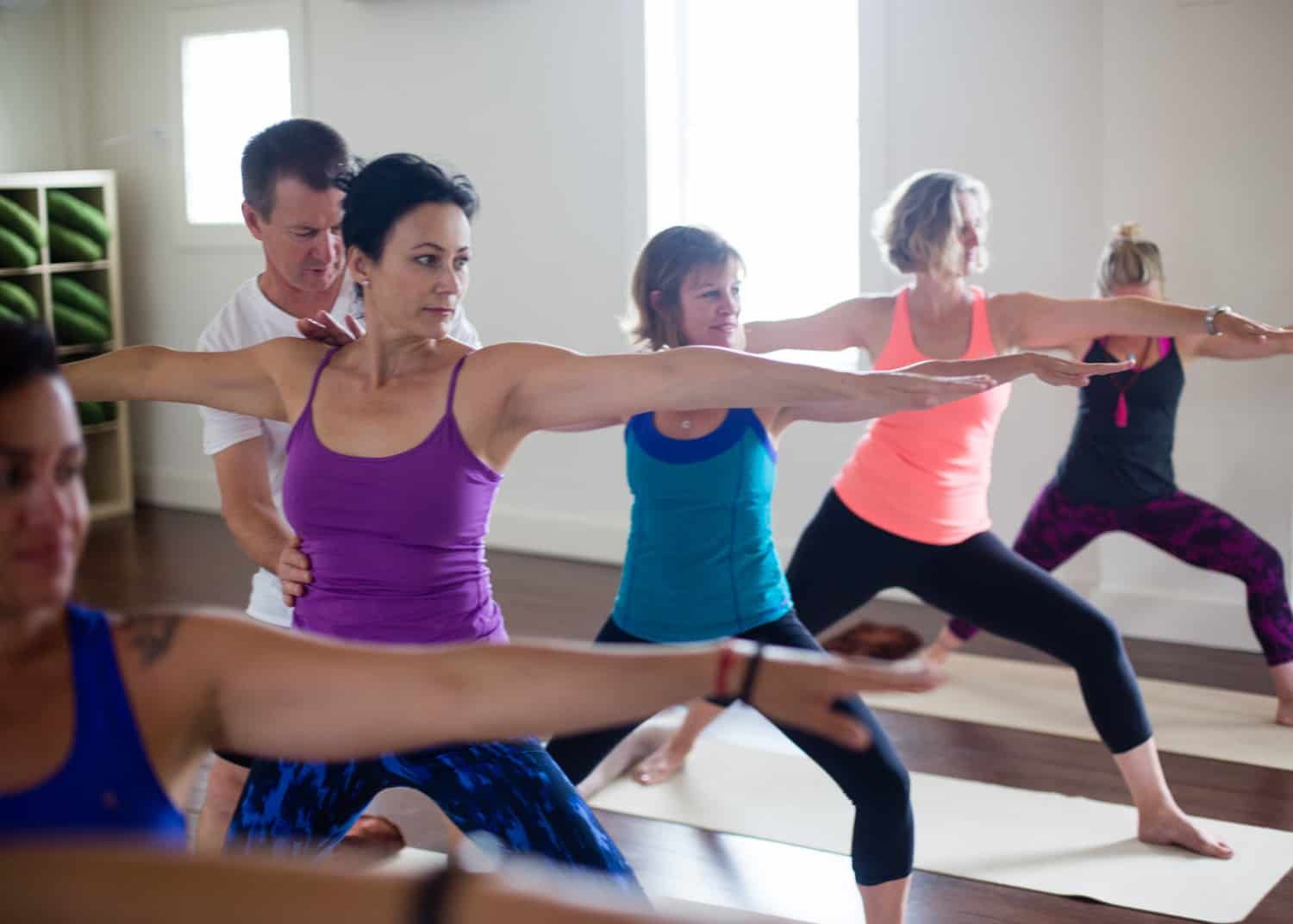Why Is Yoga Therapy Gaining Attention?

 By Lisa Grauaug
By Lisa Grauaug
As a Yoga Teacher and Yoga Therapist I’ve been really interested and inspired to watch the growing interest in yoga therapy. This interest isn’t just coming from within the ‘yoga world’. As the health sector is becoming more open and accepting of the therapeutic benefits of mind-body therapies, yoga continues to gain traction.
There are a number of contributing factors at play here. One of the most influential is a societal shift and increasing interest in natural approaches to health and healing to complement western medical treatments, including the growth of Integrative Medicine.
There is also continued growth of published clinical research providing evidence on the benefits of yoga for a range of health conditions – to include back pain, anxiety, depression, insomnia and its ability to reduce symptoms for respiratory conditions such as asthma and reduce some of the risk factors for cardiovascular disease.
At the same time, Yoga Therapy as a professional practice distinct from Yoga Teaching is growing. The number of graduate Yoga Therapy training programs is on the rise, as is the number of International Yoga Therapy Conferences.
It is without a doubt that Yoga Therapy is finding its place as a practice to consider as a health care intervention.
So What Exactly is a Yoga Therapist?
Yoga Therapy is a mind-body intervention; a Yoga Therapist requires diverse knowledge and skills, a level of expertise and acknowledgement that Yoga is a practice available for everyone, including students with a variety of health conditions and life challenges.
As part of a Yoga Therapy training you will learn and develop skills that enable you to intelligently offer mind-body practices to enable and support individuals with a wide range of presenting health conditions and life challenges.
A Yoga Therapist’s knowledge, approach and skills are based on source Yoga teachings and Yogic principles, integrated with biomedical and current evidence-based western medicine. Yoga Therapy is a comprehensive, holistic approach that considers all aspects of a person – to include body, breath, mind and lifestyle.
How Does the Yoga Therapy Process Work?
The Yoga Therapist approaches health and healing by educating and empowering individuals with a range of skills so the person can take better care of self. The client is the ‘doer’ and with this enabling process they experience a sense of control, rather than helplessness, in their ability to make a difference for themselves.
A fundamental aspect of a Yoga Therapist’s work is in the assessment phase where all aspects of the person are considered and “no stone is left unturned” – this includes observational, examination and functional assessment. This assessment process ensures the development of an appropriate practice and this aspect of the Yoga Therapists work is threaded throughout the therapeutic process. Ongoing review and refining is an essential part of Yoga and Yoga Therapy.
Yoga Works Best When it is Person-oriented
Yoga Therapy training provides a comprehensive and systematic framework to work with clients one-on-one. Yoga Teachers embark on this path to develop skills and knowledge to more fully support their clients and students.
Essentially Yoga works best when it is “person-oriented”. Given the multi-dimensional nature of the person and that clients often present for Yoga Therapy with multi-faceted histories, it may be a challenge to know where to begin. It is indeed an advanced skill of knowing where to start and deciding what is an appropriate practice to ensure an optimal outcome. This skill set is developed in one’s Yoga Therapy training and particular attention is given to this in the professional mentoring component.
A Yoga Therapy trainee who recently completed our Foundations of Yoga Therapy Course is amazed at the benefits her case study client reported. We love hearing these stories to remind us what positive benefits Yoga can bring to people’s lives and the impact our graduates are having on the people they work with:
“Thank you for allowing me to be a part of your Personal Practice case study. It has helped me commit to some yoga practice at home and I really feel a whole lot better for it. I love that it has been personally designed for me concentrating on my weaknesses, i.e. lower back pain, my core strength and my breathing. I have definitely noticed that the core exercise with the reverse breathing have helped with my lower back pain and also assist me moving into some poses which were difficult before. My abdominals also feel tighter as a result so this is a huge bonus. I will continue to enjoy my personal practice at home.”
Interested in Yoga Therapy Training? Learn more about The Yoga Institute’s upcoming Foundations of Yoga Therapy Course and Yoga Therapy Training Course